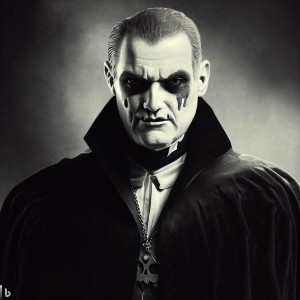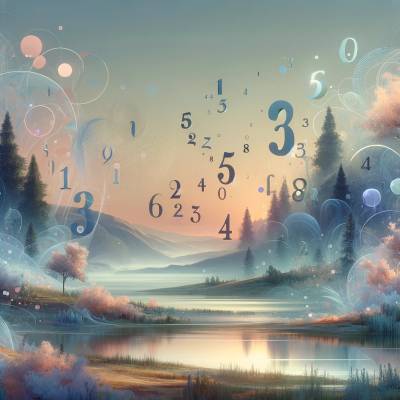Fangs, Fear, and Fantasy: What Does It Mean When You Dream About Vampires?

Discover the mysterious world of nocturnal fantasies as we explore what it means when you dream about vampires. Delve into the symbolism behind these bloodthirsty beings and unravel the psychological implications of such vivid dreams. By the end, you’ll have newfound insights into the enigma of vampire dreams.
I. Introduction
A. Delving into the World of Nocturnal Fantasies
Have you ever found yourself amid a dream, engaged in a thrilling or terrifying encounter with a vampire? Such dreams can be incredibly vivid, leaving you puzzled about their significance. This article will explore the mysterious world of vampire dreams, examining the possible meanings and symbolism behind these nocturnal fantasies.
B. Decoding the Language of Dreams
Understanding the symbolism in our dreams is crucial, as these nocturnal narratives often hold the key to unlocking hidden aspects of our emotions, thoughts, and subconscious desires. By investigating the world of vampire dreams, we aim to help you decipher the messages your subconscious may attempt to convey, providing insights into your inner self and personal growth.
II. Common vampire dream scenarios
A. Fleeing the Night’s Predators
One common scenario involves being chased or attacked by a vampire. You may find yourself running from the menacing creature or fighting it off in a life-or-death struggle in these dreams. The emotions felt during these dreams can be intense, often leading to feelings of fear and vulnerability upon waking.
B. The Dark Transformation
Another frequent theme in vampire dreams is becoming a vampire oneself. This metamorphosis can be experienced as a thrilling power surge or a terrifying loss of humanity. It may involve acquiring supernatural abilities, immortality, and a newfound desire for blood.
C. Enchanting Nocturnal Encounters
Not all vampire dreams are filled with terror. Sometimes, they may feature a friendly or romantic interaction with a vampire. These dreams can be alluring and seductive, as the vampire might represent a captivating figure of mystery and desire.
D. Vanquishing the Bloodthirsty Foe
In some vampire dreams, you may kill or escape the vampire, triumphing over the dark force. These dreams often symbolize personal strength, resilience, and overcoming obstacles or fears.
III. Psychological interpretations of vampire dreams
A. Shadows of Fear and Anxiety
1. Confronting the Monsters Within
Vampire dreams can symbolize our inner fears and anxieties. They represent the parts of ourselves that we find difficult to confront or acknowledge. By facing these fears in our dreams, we can work through them and better understand our emotions.
2. Situational Stressors
Sometimes, vampire dreams can be tied to specific events or situations in our lives that are causing us stress or anxiety. These dreams might serve as a way for our subconscious to process and cope with the emotions associated with these experiences.
B. The Dance of Change and Growth
1. Embracing the Unknown
Vampire dreams can also symbolize transformation and personal growth. As we change and evolve throughout life, we may experience uncertainty or fear. Dreams of vampires can be a metaphor for embracing these changes and adapting to new circumstances.
2. Identity Struggles
Dreaming of becoming a vampire may reflect our struggle with personal identity as we strive to understand who we are and what we value. The vampire’s dual nature, as both human and monster, can symbolize the complexity of our own identities.
C. The Thirst for Power and Control
1. Claiming One’s Authority
Vampire dreams can also represent our desire for power and control over ourselves or others. As vampires are often depicted as powerful beings, these dreams may reflect our aspirations to attain strength and authority.
2. Fear of Losing Grip
Conversely, vampire dreams may also represent our fear of losing control. This can be especially true in dreams where we are pursued or attacked by a vampire, as the threat of the vampire’s dominance can symbolize our anxiety over being overpowered or manipulated.
D. Entwined Hearts and Fangs
1. Emotional Vampires in Our Lives
Vampire dreams can also serve as a symbol of relationships and intimacy. They may represent “emotional vampires” in our lives – people who drain our energy or happiness. These dreams can highlight the need to establish boundaries or re-evaluate our relationships.
2. Complexity of Human Bonds
Friendly or romantic vampire dreams can reflect the complexities of our relationships as we navigate the balance between desire, trust, and vulnerability. These dreams serve as a reminder that relationships often require both give and take, as well as the need for emotional openness.
IV. Cultural and historical influences on vampire dreams
A. Ancient Legends and Lore
Vampire mythology and folklore have existed for centuries, spanning various cultures and societies. These tales often feature vampires as powerful, immortal beings who thirst for blood. The influence of these myths and legends can seep into our dreams, shaping the way we perceive and interact with vampires in our subconscious minds.
B. The Impact of Pop Culture
Modern pop culture has also played a significant role in shaping our perception of vampires. From classic novels like “Dracula” to popular TV shows and movies, the vampire has become an iconic figure in contemporary media. This widespread exposure to vampire imagery and themes can influence our dreams and how we interpret them.
V. How to analyze and apply dream insights
A. Chronicle Your Nocturnal Adventures
Keeping a dream journal can be invaluable in understanding and interpreting your dreams. By recording your vampire dreams as soon as you wake up, you can capture the details and emotions more accurately, which can help you identify patterns or recurring themes over time.
B. Reflect on Your Personal Experiences
When interpreting your vampire dreams, consider how the themes and emotions may relate to your personal experiences and emotions. Reflecting on your relationships, fears, and aspirations can provide insight into the meaning behind these nocturnal encounters.
C. Seeking Guidance from the Professionals
If you find that your vampire dreams are causing significant distress or interfering with your daily life, it might be helpful to seek professional help. A therapist or counselor can provide guidance and support in exploring the underlying issues contributing to these dreams and help you develop strategies to address them.
FAQs
Q: Are vampire dreams a sign of repressed desires or fears?
A: Vampire dreams can represent repressed desires or fears, as they often symbolize subconscious aspects that we may find difficult to confront or acknowledge. Analyzing these dreams can provide insight into our emotions and help us better understand our inner selves.
Q: Can vampire dreams be related to real-life experiences?
A: Yes, vampire dreams can be related to real-life experiences, particularly those that cause stress, anxiety, or fear. Our subconscious may use these dreams to process and cope with the emotions associated with such experiences.
Q: What do friendly or romantic vampire dreams signify?
A: Friendly or romantic vampire dreams can reflect the complexities of our relationships as we navigate the balance between desire, trust, and vulnerability. These dreams also represent the need for emotional openness and the importance of giving and receiving in our relationships.
Q: Can dreaming about vampires indicate a struggle with personal identity?
A: Dreaming about vampires, particularly becoming one, can signify a struggle with personal identity. The vampire’s dual nature, as both human and monster, can symbolize the complexity of our identities and the challenge of understanding who we are and what we value.
Q: Do vampire dreams always have a negative connotation?
A: No, vampire dreams do not always have a negative connotation. While they can represent fears or anxieties, they can also symbolize personal growth, transformation, and exploring complex relationships. The specific meaning of a vampire dream will depend on the individual’s experiences and emotions.
Q: How can I analyze my vampire dreams to gain insight into my emotions and personal growth?
A: To analyze your vampire dreams, consider keeping a dream journal, recording the details and emotions of your dreams as soon as you wake up. Reflect on how the themes and emotions in your dreams may relate to your personal experiences, relationships, and emotions.
Q: Should I seek professional help if my vampire dreams are causing significant distress?
A: If your vampire dreams are causing significant distress or interfering with your daily life, it may be helpful to seek professional help. A therapist or counselor can provide guidance and support in exploring the underlying issues contributing to these dreams and help you develop strategies to address them.
Conclusion
A. Unraveling the Enigma of Vampire Dreams
Throughout this exploration of vampire dreams, we have discovered that these nocturnal encounters can hold various meanings and symbolism, ranging from fear and anxiety to personal growth and transformation. By examining the specific scenarios, emotions, and personal experiences associated with these dreams, we can gain valuable insights into our inner selves and better understand the messages our subconscious is attempting to convey.
B. Embracing the Journey of Self-Discovery
Dreaming about vampires invites us to embrace the mystery and personal growth that comes with exploring the depths of our subconscious. By acknowledging and understanding the significance of these dreams, we can embark on a journey of self-discovery and self-improvement, using our nocturnal encounters to navigate the complexities of our emotions, relationships, and personal identity.
- “The Interpretation of Dreams” by Sigmund Freud – This classic work by the father of psychoanalysis offers an in-depth look into the complex world of dreams, exploring the significance of symbolism, repressed desires, and the workings of the subconscious mind.
- “Man and His Symbols” by Carl G. Jung provides a comprehensive introduction to the theories of renowned psychologist Carl Jung, focusing on the role of symbols and archetypes in our dreams and the collective unconscious.
- “The Vampire in Folklore, History, Literature, Film and Television” by J. Gordon Melton – This fascinating exploration of the vampire myth delves into its origins, tracing the vampire figure from ancient folklore to modern pop culture. Understanding the cultural history of vampires can provide valuable context for interpreting vampire dreams.
- “Dreams: Unlock the Secrets of Your Subconscious” by Dr. Fiona Zucker and Jonny Zucker – This accessible guide to dream interpretation offers practical advice and techniques for decoding the messages hidden within our dreams, including those featuring vampires and other supernatural beings.
As you explore these resources, remember that understanding the significance of vampire dreams and other nocturnal fantasies is a continuous process of self-discovery and growth. Engaging with these texts will expand your knowledge of dream interpretation, allowing you to gain deeper insights into your emotions, relationships, and personal identity. Embrace the journey and uncover the mysteries that lie within your dreams.






